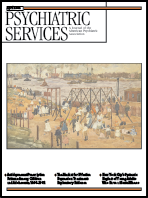Psycho Bible: Behavior, Religion, and the Holy Book
In Psycho Bible: Behavior, Religion, and the Holy Book, Armando Favazza, M.D., takes readers through an extensive and intense theological and psychological journey. This is certainly not a small task in a country like the United States, which has more than 2,000 religious denominations and about 500,000 churches, temples, and mosques. As Favazza explores the interfaces between psychiatry and religion, new perspectives and insights evolve that have major significance and relevance to psychology and behavior.
After a foreword written by Dr. Marc Galanter, the book starts with a preface by the author, in which it is clear that, although Favazza started to think about writing this book around 1998, Psycho Bible really reflects Favazza's entire life and life's experiences. Favazza then discusses "Books of the Bible." In this section, he covers the major divisions of the Old Testament (the Torah, the Prophets, and the Writings) and the New Testament (Gospels and Acts, Paul's epistles and letters, the general epistles, and Revelation). Next he provides an introduction that outlines the contents of the books of the Bible in detail.
The chapters that follow address many key topics that have major implications for psychiatry. Chapter 1—"God Bless the God Who Has His Own"—has common ground with some of Freud's psychoanalytic theories and thinking. In chapter 3—"Don't Spoil the Soup: Women in the Bible"—one sees the origins of discrimination against women and prejudices and misconceptions throughout history. Chapter 4—"Comme Ca: Homosexuality and the Bible"—clearly depicts the unfair prejudices against homosexuality. In chapter 5—"God in a Bottle: Alcohol and the Bible"—the interface between religion and alcoholism surfaces. In chapter 7—"Something About the Body"—the role of self-mutilation, including castration, is examined, as well as its unique psychological connotations and sequelae. Chapter 8—"Praise the Lord and Pass the Medication: Healing and Feeling Good"—outlines and advances the foundation of healing and the basis of biological mechanisms and approaches to cure. In chapter 9—"True, False, and Useful: the Spiritual Marketplace, Religion, and Psychiatry"—the practice of worship is delineated, including the role of spirituality and even counseling and psychotherapy. Finally, the book has an excellent bibliography and index.
In summary, Psycho Bible offers a unique perspective on the relationship between religious concepts and psychological meaning. Undoubtedly, this book will be very useful for all mental health professionals and trainees as well as for health care professionals in general as they attempt to understand their patients from a religious context. The book is also very useful for understanding behavior in the context of religious norms and traditions. Finally, I think Psycho Bible offers the best-ever scientific comprehension of the impact of religion and behavior. Without question, the contents of this book are essential to the understanding of the theory and practice of cultural psychiatry, and I am planning to use it frequently and extensively.
Dr. Ruiz is professor and vice-chair in the department of psychiatry and behavioral sciences of the University of Texas Medical School in Houston.



